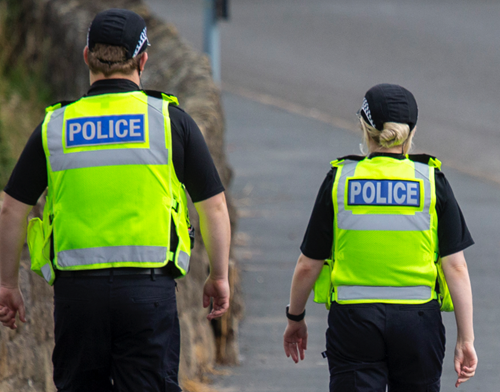'Building relationships and instilling confidence' at the heart of neighbourhood policing
25 January 2024
Suffolk Police’s focus on neighbourhood policing is having a positive impact on the public’s perception of crime as well as disrupting antisocial and criminal behaviour, says a Federation member.
The Force moved to a new operating model in December, which aimed to strengthen community links with the public.
Speaking to Suffolk Police Federation as part of Neighbourhood Policing Week, Sergeant Rocky Hussain said the change is allowing community policing officers to build relationships and ‘instil confidence’ in the public.
“One of the biggest challenges we have, is people’s perceptions of crime having a disconnect with the reality of crime,” said Rocky, whose team covers southeast Ipswich.
“Last year I was working in Ipswich town centre and the public’s perception of serious violence and knife crime there, for example, was extremely disproportionate to the actual statistics around serious violence and knife crime.

“It’s that fear that we have to try to address.
“The only way you can do that is by going into the community, into those neighbourhoods and meeting those people.
“By having high visibility patrols, engaging and doing some old school walking the beat, meeting members of the public, then we’re able to instil confidence.
“Trying to bring a reality as opposed to the perception and fear of what crime is really going on, is really important.”
Neighbourhood Policing Week runs until 26 January and is a chance to highlight the work the Force does to keep communities safe.
Rocky said an important part of the Community Police Teams (CPTs) work is to reduce and prevent the need for emergency calls into the Force.
“Most people when they think about the police, they think about 999 and emergency response,” he said.
“But before it gets to that stage, we the CPTs are involved in a wide spectrum of work to try to prevent the need for any situation to reach a 999 call, which is where neighbourhood problem solving policing comes in.
“And where neighbourhood policing is so essential is that by our presence of being in the community and engaging, we’re able to take away opportunities for criminals to commit crime, and to make vulnerable people and victims feel safer.
“We can also target prolific offenders. Between 80 per cent and 90 per cent of crime is committed by 20 per cent of offenders.
“By targeting those 20 per cent of offenders, we would naturally reduce the amount of crimes being committed.
“The neighbours are then not going to call 999, saying they've got issues outside their window and results in response having to come and deal with it.
“It might be a small percentage reduction in calls in the beginning, but it means the response teams aren’t getting as many calls and can now deal with more serious matters, and as time goes on we hope that the percentage will continue to increase.”
READ MORE: Fed chair responds after Force told to save millions.


















